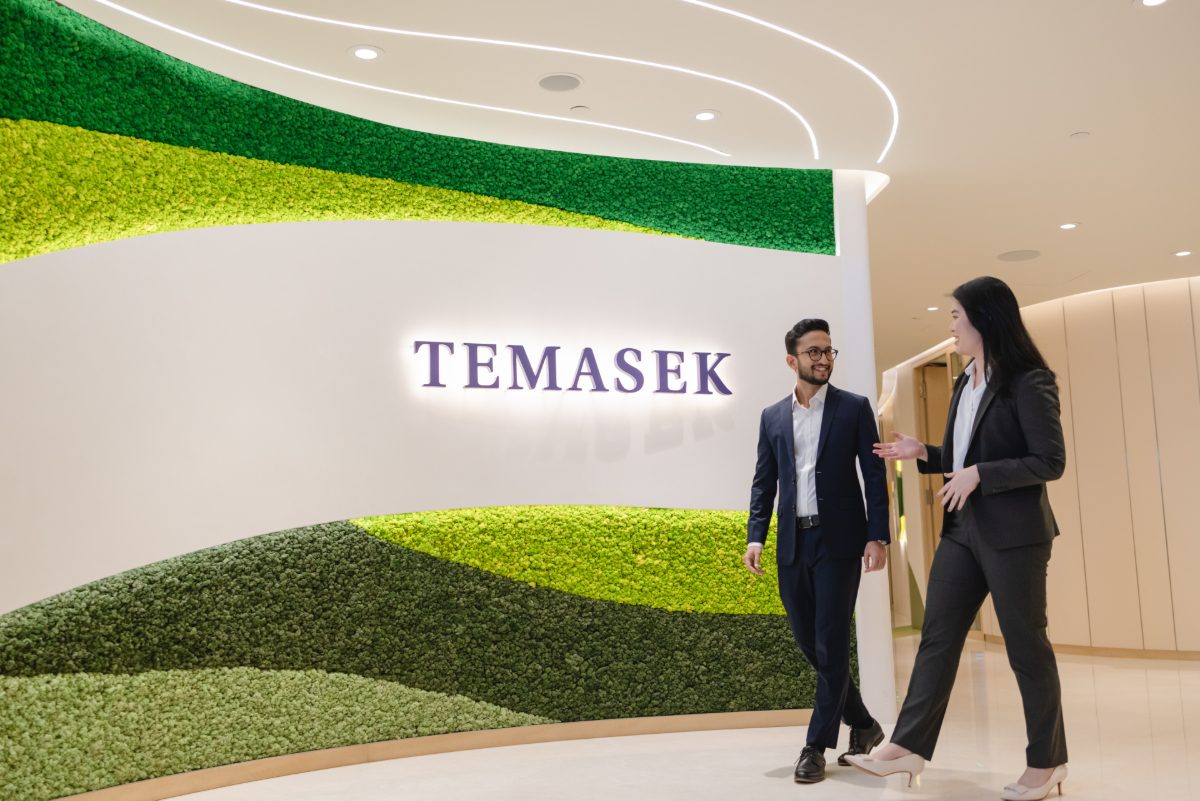Singapore state investor Temasek will continue to make sustainability-linked investments even as a political backlash in the US pushes some asset managers to scale back their commitments to environmental, social, and governance (ESG) projects.
Companies offering products and services with environmental and social objectives made up 11% of its S$434 billion net portfolio value in the year ended March 2025, just about the same as the previous year’s at 12%. These portfolios, including climate transition and impact investments, are now worth S$46 billion ($36 billion), up 18% year on year.

Temasek’s green agenda remains steadfast at a time when some of the world’s biggest fund backers across public and private markets are cutting or reviewing ties with the likes of BlackRock that may not align with their ESG goals as the Trump administration targets climate policies and diversity, equity, and inclusion programmes.
Among such managers, State Street Global Advisors lost a mandate of roughly $480 million with AkademikerPension, Denmark’s public pension fund that manages assets worth around $20 billion.
For Temasek’s investment chief Rohit Sipahimalani, the firm’s approach hasn’t shifted despite the general retreat under the Trump administration as it avoids long-term investments that rely on government subsidies. The shift towards a lower-carbon, renewable energy future presents compelling opportunities irrespective of policy changes, he said, adding that even major US corporates are still continuing to work towards their net-zero goals.
“We see significant opportunities to participate in that transition in ways that will be financially attractive, regardless of government subsidies,” Sipahimalani said during a sustainability-focused press briefing.
“The opportunity sets are actually quite compelling, despite some of the short-term volatility,” added Temasek’s chief of sustainability Kyung-Ah Park.
While Temasek’s fund portfolios are relatively small compared to its direct investments, the firm said it assesses asset managers based on their ESG integration practices in addition to understanding their climate, net zero or DEI pledges.
“We remain open and engaged even with managers whose public commitments have changed, as long as we are confident that they are aligned with our long-term goals. Temasek seeks to understand their ESG approach from an investment lifecycle perspective and encourages progress where needed,” its media representative wrote in response to a DealStreetAsia query.
In 2024, Temasek gave a re-up for Brookfield’s Global Transition fund franchise that is expected to amass a combined $32 billion following the close of the second instalment this year. The Wall Street giant also won a commitment from Temasek for its blended finance strategy that most recently raised $2.4 billion and is targeting clean energy and transition projects in emerging markets.
Besides, Temasek set up a separately managed account with Blue Earth Capital and backed GEF Capital’s third mid-market growth equity fund for South Asia within the same financial period.
Ambitious goals
Temasek is still targeting to slash its net portfolio emissions to 11 million tonnes of CO2 equivalent within five years, an imminent timeline. The 2030 goal is to halve its current portfolio emissions that stand flat at 21 million tonnes of CO2 equivalent as of March 31, 2025, compared with the previous year, with no material change from 14 years ago.
Since 2022, the state investor has also started reporting whether its portfolio companies are getting better at generating revenue in a low-carbon way. For the year ended March 31, 2025, this metric also remained flat at 92 tonnes of CO2 equivalent per S$ million revenue.

Park admitted that the group’s 2030 target is “ambitious”, while its plan to achieve net zero by 2050 is “a heavy lift” and added that the progress is going to be bumpy due to the exposure to sectors that need solutions for sustainable aviation fuel, green hydrogen, and carbon capture and storage.
“It’s not going to be linear, given we have a concentration of emissions from companies in hard-to-abate sectors, and the decarbonisation solutions are not readily available today. And given the headwind, the pathway for commercialisation and scale-up will take longer, but we remain committed to our target,” she said.
Demand for air travel and cargo uplift from Singapore Airlines makes the aviation business the largest emitter, accounting for 43% of Temasek’s total portfolio emissions. Other key contributors include household names in the city-state such as Sembcorp Industries, Olam Group, PSA International, and ST Telemedia, which collectively contributed 82%.
The carbon intensity of Temasek’s portfolio, which is measured relative to the current market value of the companies, fell roughly 14% to 63 tonnes of CO2 equivalent per S$ million portfolio value in FY25 from 73 in the previous year. Its underlying investments are now over half as carbon intensive compared to the 2010 levels, even as its portfolio value grew.



